Flying Binky Home
FLYING BINKY HOME
An essay by Mark Stanton
*

There I was at 30,000 feet flying west with a bag of marijuana and an urn of ashes. My friend Binky Marks had brought the brown paper bag to the Booksellers Convention and in a terrible twist of fate, the urn contained his ashes. Earlier that morning I had crammed the two containers into the top of my carry-on bag. I just couldn’t make myself flush Binky’s bag of weed down the toilet. I felt obligated to bring something of his back to Vancouver to share with his friends. But it was this half bagful of grass that placed me in peril. And it was an amazing stroke of luck that I was now sitting in a comfortable Air Canada seat rather than sitting handcuffed in a Halifax police interrogation room facing a criminal charge of possession.
Reviewing the rush of events during the last two days made me realize that there hadn’t been time for me to deal with the devastating effects of grief and shock and guilt. It would be a long flight across the country so I could use the time to make sense of the emotional strain I had been under.
It hadn’t been that long ago, June 1972, when my wife Annette and I moved to Vancouver with our young family. I would partner in the creation of McIntyre and Stanton, publisher’s sales agents to bookstores and public libraries. Our plan was to purchase Douglas Agencies from Jim Douglas and grow the new company to help cover our payments. We would soon represent practically all of the trade and university press publishing in Canada including McClelland & Stewart, Macmillan of Canada, and the University of Toronto Press.
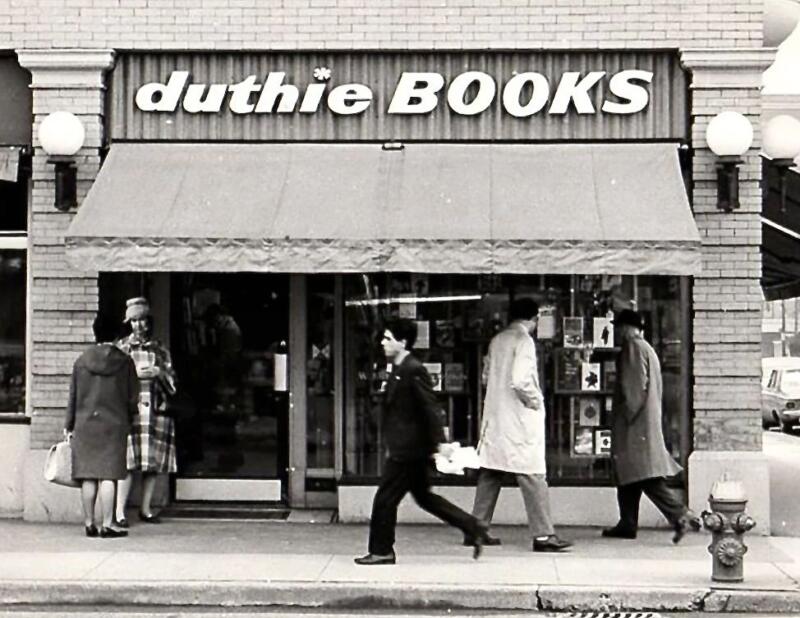
Vancouver’s retail trade had so many larger-than-life characters at that time: barrel-chested former sergeant-major Andy Wright of Eaton’s, veteran naval signalman and amateur magician Harry Bulpit of Woodward’s, and bright young practical jokester Bill Davidson at The Bay. Duthie Books had not one but two of these outstanding characters.

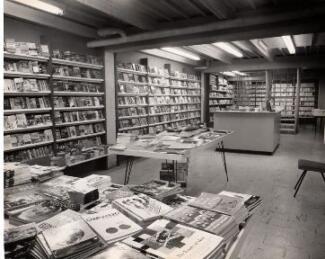
Upstairs in hard covers Bill Duthie was the most respected bookman in all of British Columbia. In the paperback cellar Binky Marks was both a lovable eccentric and the possessor of the most encyclopedic knowledge of books accumulated over the last quarter century. Binky went out of his way to help mentor me when I was new to both the west coast book trade and the backlists of the many publishing houses we represented. He provided me with a bookseller’s perspective of authors, titles, and their publishers. This deep background proved invaluable to me.
Outside of work, again it was Binky’s generosity that introduced the Stantons to the On-On Tea Gardens upstairs on Keefer Street. The amazing variety of textures, tastes, and smells of the On-On’s Chinese food was a revelation as were the helpful elderly waiters and the noisy chefs. We were also introduced to the secret healing powers of sweet and sour soup,unforgettable black bean sauce, and amazing lettuce wrap.

I remember Binky as always being full of restless energy, moving around the store in a rapid shuffle, simultaneously tidying shelves, answering questions, and greeting customers. He was always dressed in a suit which seemed to rumple the moment he put it on. His tie, with memories of recent meals, was usually askew and often in tatters as he was known to absentmindedly chew them. For all his outstanding abilities, he wasn’t well organized. All his pockets were stuffed with scraps of paper: notes, reminders and receipts as well as crumpled bills in various denominations. Binky’s handwriting was illegible to everyone. A few minutes after he wrote something he couldn’t read it himself. Searching for a particular piece of paper often took quite a while. His eccentricities sparked rumours that Binky carried food in his pockets. The food was to give away to those in need rather than cash. Supporter of writers, especially poets, and local arts and cultural events, he was most celebrated as host of his annual Boxing Day Party open to the entire Vancouver Book trade. After his divorce from Connie Spain he became a gourmet chef “for survival” and Boxing Day was an opportunity to use his skills for his friends. Binky truly enjoyed people in all their endless variety.
Navigating four flights of slippery wooden stairs at the back of Binky’s home in the inevitable December rain was something of a challenge. He lived on the fourth floor of an older home on 19th Street just east of Main. Access to the rear stairs, constructed as a fire escape, was beside a lightless landing. A large part of the basement was above ground requiring eight or nine steps to the first landing with a back door bearing an ominous warning: CONDEMNED. On the next landing was an identical sign affixed to an identical door.
A steady stream of raincoated celebrants went ant-like up and down those grey unlit stairs bumping umbrellas and exchanging the usual seasonal greetings. With the help of the flimsy railings, Annette and I arrived at the fourth floor landing where we entered through the kitchen door into the relative safety of Binky’s warm and cozy apartment. Everywhere there was laughter, the clinking of ice cubes in glasses, metal cigarette lighters flicking open, and a mix of enticing aromas emanating from his oven. We were greeted with the sight of a duck-laden baking pan sliding across the floor toward us. Binky emerged from the kitchen waving his oven mitts in search of his wayward fowl. He was wearing a pair of leopard-skin briefs and floppy bunny slippers. The briefs, he admitted with a grin, were this year’s favourite Christmas present. The duck was meant for one of the two huge tables sagging under roasts of boeuf bourguignon, pork souvlaki, and lamb curry. There were also scalloped potatoes, wild rice, mussels, coq au vin, and poached salmon all competing for space with plates and cutlery. Every other surface was crammed with a variety of wine, brandy, whisky, rum, and liqueur bottles. Also crammed together were booksellers, sales reps, book reviewers, and starving poets with their clingy new girlfriends, all talking, drinking, smoking, eating, and making a joyful din.
Several drinks later it was more dangerous descending those wet stairs in the evening gloom. After loosening our death-grip on the down rail we were left to wonder how so many people could occupy the fourth floor of a house where the two lower floors were all CONDEMNED.
Toronto’s Upper Canada College, the exclusive WASP boys prep school for Canada’s cultural and business elite, must not have been paying close attention when they admitted a little Jewish first grader named Mark Merwyn Marks. But he was full of energy, quick-witted, and friendly. Very like his future employer and friend Bill Duthie, Binky’s lifelong commitment to reading began in his youth. He soon gained the distinctive nickname that would follow him throughout his life. After graduation he studied English, History, and Economics at the University of Toronto participating in student unrest and writing for The Varsity, the student newspaper, under editor Andrew Allen. Andrew Allen would later become famed for his brilliant drama programming on CBC Radio. However, Binky’s higher education was interrupted when his father suddenly died. His father, Henry Harris Marks, who ran a small wholesale hardware business was ground down by the Depression, became ill and died. He was 56 years old. “He was one of those old-fashioned businessmen who work their guts out and treat their staff very decently. It shook me to see what happened to the business. I had to go in and close it down to get enough money to keep my mother. I saw of lot of guys thrown out on the street.” This incident further shaped his left-wing views and had a lasting influence on his character. Binky dropped out of university and after working briefly in a gold mine in Timmins he became secretary to his stockbroker uncle, Elly Marks. Binky developed an ability to analyze stocks and his small investments paid off handsomely. He admitted to being conflicted by his growing wealth and his left-leaning view of capitalism. Becoming active in the Communist Party did not endear him to his cousin Nathan Phillips, who was active in local politics and later became a popular Mayor of Toronto. Binky had recruited various relatives to volunteer for a communist candidate contesting a seat on the Toronto Council. Nathan Phillips never spoke to them again.
During the Spanish Civil War Binky was on several committees with Dr. Norman Bethune. McGill educated, he would become the most famous Canadian in Spain and later in China. Binky had use of the family car and drove Bethune around Toronto to his fundraising events. “Bethune was a very brilliant guy, a brilliant organizer, and very impatient with other people. If people didn’t come to a quick decision, he got very impatient with them. But he had a real love for people and for living – and he was quite a ladies’ man to boot.”
When Binky joined the Canadian Army he was presented with a dilemma. Being an idealist, a communist sympathizer and a pacifist, it was inevitable he would become a driver in the Royal Canadian Army Service Corps delivering food, gasoline and ammunition. He also managed to keep local partisans alive with liberated food. By mid-1943 he was in Sicily and then followed the Canadian front lines up the eastern coastline of Italy.

Binky returned to the University of Toronto and completed his Bachelor of Arts degree and became a supporter and member of the Communists Party of Canada. He then moved to Vancouver to work for ArtKino Sovfilms, a Soviet produced movie distributor which failed in 1947. Binky then “drifted” into a job as manager of the Communist Party’s Peoples Co-operative Bookstore, a small street-front store located within the Pender Auditorium at 339 West Pender Street. The auditorium was also known as The Boilermaker’s Hall and, in 1947, a great, colourful, 30-metre-long mural was painted by Fraser Wilson depicting B.C. unionized workers throughout the province. The venue was also known as The Dance Hall where a number of bands performed including a Grateful Dead Concert in 1966. Throughout his over ten years of management at the Co-op, Binky maintained his equilibrium between two strong-willed groups of 13 directors constantly squabbling for dominance. Comrades in the zealous faction demanded that the store stock only hard-line material and were opposed by the moderates who wanted a socialist bookstore that also contained a wide variety of books. Harry Rankin was a very strong supporter of Binky on the Board of Directors. Jack Scott and Dorothy Livesay were also loyal to Binky and his style of management. Binky felt himself elevated to communist royalty when mail began arriving at the Peoples Co-op addressed to Mr. B. Marx. He would later be succeeded by a tall Latvian who gloried in the name of Osmo Lahti.
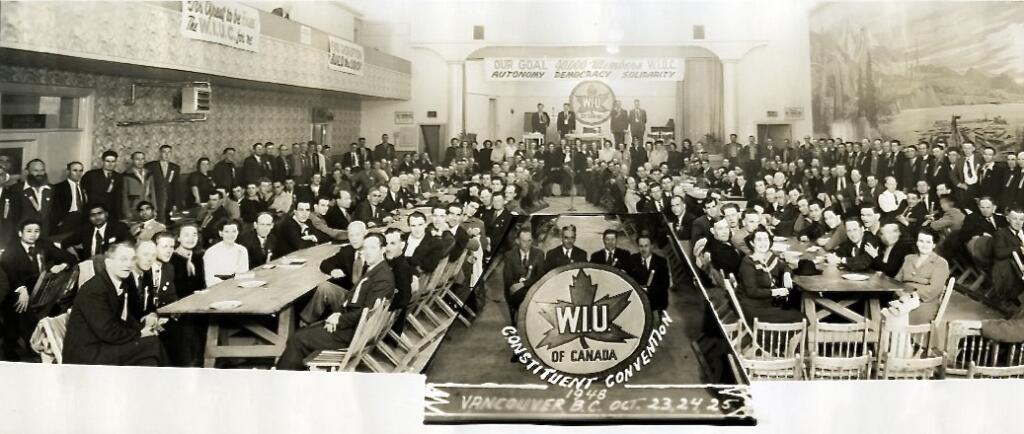
Binky also initiated off-site sales. Beginning in 1952 he successfully sold books and records on the Canadian side of Peace Arch Park. Each summer for four successive years the great black American-born singer and actor Paul Robeson stood on the back of a flat-bed truck exactly one yard from the US/Canada border and held a concert for his loyal Canadian audiences.
Son of a runaway slave, a graduate of Columbia Universities Law School, an NFL player, his associations with communist causes resulted in his confinement. In the early 1950’s McCarthyism in the U.S. exploited Americans’ fear of communism. The Republican U.S. Senator chaired a senate investigations committee where he excelled in reckless accusations, baseless charges and the distortion of facts and figures. He left crushed careers and fractured families in his wake. One such casualty was Paul Robeson who had a successful international career and had lived abroad for several years and was now confined to the United States. His passport was confiscated by the State Department.
However, Binky Marks was no blinkered political zealot. When the Soviet army invaded Hungary in 1956, he renounced communism and became an unaffiliated political rebel.

Bill Duthie at the bookshelves in 1958 – nearby cover of Margaret Ormsby’s British Columbia: A History, designed by Robert Reid. Photo courtesy Mark Stanton
When I first met Bill Duthie, he was captaining his fleet of bookstores from behind his Robson Street store’s front counter looking not unlike the tank commander he had been in the Second World War. He once admitted to me that he still experienced ringing in his ears occasionally – tanker’s syndrome. With his usual Craven ‘A’ in his hand, he held court at the front counter offering book advice, answering the phone, meeting people, and trading banter. Anyone familiar with Karsh’s famous portrait of Ernest Hemingway swore that Bill looked exactly like the famous bearded author but without the fisherman’s turtleneck sweater. The combination of appearance, stature, and knowledge resulted in more than a few members of the public, sales reps and potential customers feeling intimidated by him.
Soon after his war in tanks ended, Bill had been hired as a sales representative for Macmillan of Canada calling on bookstores and public libraries in rural Ontario and Quebec. In 1950, he also began his semi-annual train, and later plane, trips to western Canada selling both Macmillan and McClelland & Stewart titles. Three years later, he moved his family to the coast becoming the first resident sales representative in British Columbia. His intention to open a bookstore in Vancouver had been known to both John Gray, the President of Macmillan, and Jack McClelland. Gray had advised Bill to locate his store in close proximity to the almost complete library building, a counter-intuitive idea that proved to be both strategic and profitable. Bill opened his first bookstore on August 1st, 1957, at the corner of 901 Robson Street and Hornby, behind the Hotel Vancouver. The store, in an older building, would later be renovated, redesigned, and renumbered. The new library opened beside Duthie’s at Robson and Burrard Streets three months later.

That same year Jim Douglas, who would become a book salesman, bookstore manager, wholesaler, and a legendary publisher, arrived in Vancouver. Jim became a sales representative, succeeding Bill Duthie, with both Macmillan of Canada and McClelland and Stewart. He often helped out at Bill’s store and would later recall his first impression “ – – – it was a small store and Bill would sit on a high stool and get up when customers came in. He knew the right book for the right customer – – – as well as a clever technique, he’d say ‘you should read this’ handing them the book.”
Jim was also impressed by Bill’s concern for the overall appearance and design of his store. From the beginning, Duthie Books had its own distinctive newspaper and magazine ads as well as bookmarks and other printed ephemera created by the city’s best graphic designers – Robert Reid and Takao Tanabe. These two young designers were then at the beginning of their remarkable careers. Bob Reid later commented “I doubt if any other book shop in the world had such an imaginative printing as Duthie Books”. Referring to his beautifully produced bookmarks, Bill later admitted that “ . . . as a cheap form of advertising, they’ve been pretty effective.”
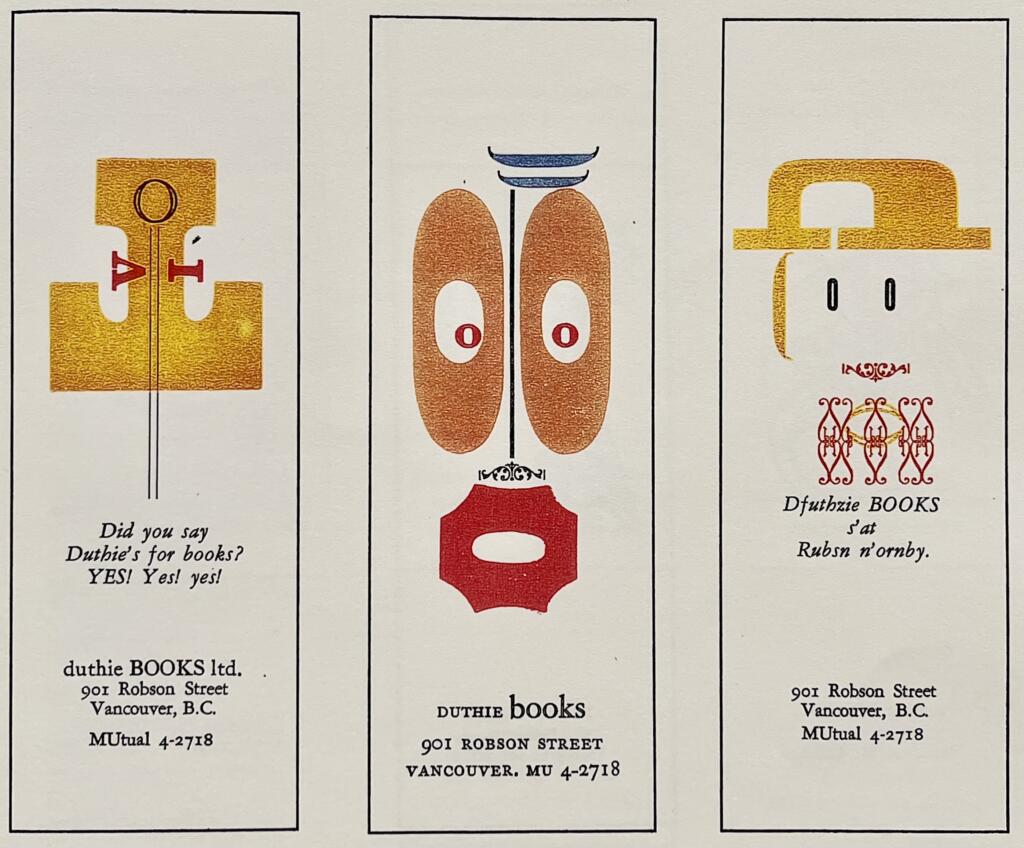
Kildare Dobbs, soon to become a senior editor at Macmillan, made his company’s western sales trip in the fall of 1957. He sent his impressions back to head office in Toronto: “Bill’s store is beautifuller [sic] even than the prairies, and Vancouver is so nice I have been looking at the want ads . . . Duthies is going like a bomb – it’s beautiful, its high class, it’s going to make his fortune. His order took me hours to write up.” Kildare, the witty and charming temporary salesman, had his own unique method of “writing up” his sales orders which the order processing department at Macmillans would soon discover. As he travelled west by train, he stopped in each major cities’ famous railway hotels sleeping each night in an echoing windowless sample room on a fold-up bed which he stored in a closet each morning with his suitcase. When booksellers or librarians appeared for their appointments, they found the cavernous sample room filled with great steamer trunks opened to display: cover mockups, colour proofs, printed galley pages, and layouts for the fall and Christmas season’s list. There were also catalogues and newly printed copies of books from the London and Toronto offices. Nearby sample rooms were occupied by peddlers of luggage; pots and pans; giftware including knick-knacks, souvenirs and novelties; and next door the noisiest room of all was filled with competing chiming grandfather, wall, mantel and Swiss cuckoo clocks.
Kildare’s creativity helped maintain his sanity. He recorded his orders on the whitest, most beautifully decorated items in the room – the hotel’s pillowcases. Orders from his Winnipeg customers were written on embroidered Fort Garry Hotel pillowcases. Saskatoon’s orders were recorded on the Bessborough Hotel’s imprint and the stately old Palliser’s pillowcases listed Kildare’s Calgary orders. Other cities hotels were similarly represented. Judging by his comments about the size of Bill’s fall order he must have posted quite a few Hotel Vancouver pillowcases back to Macmillan.
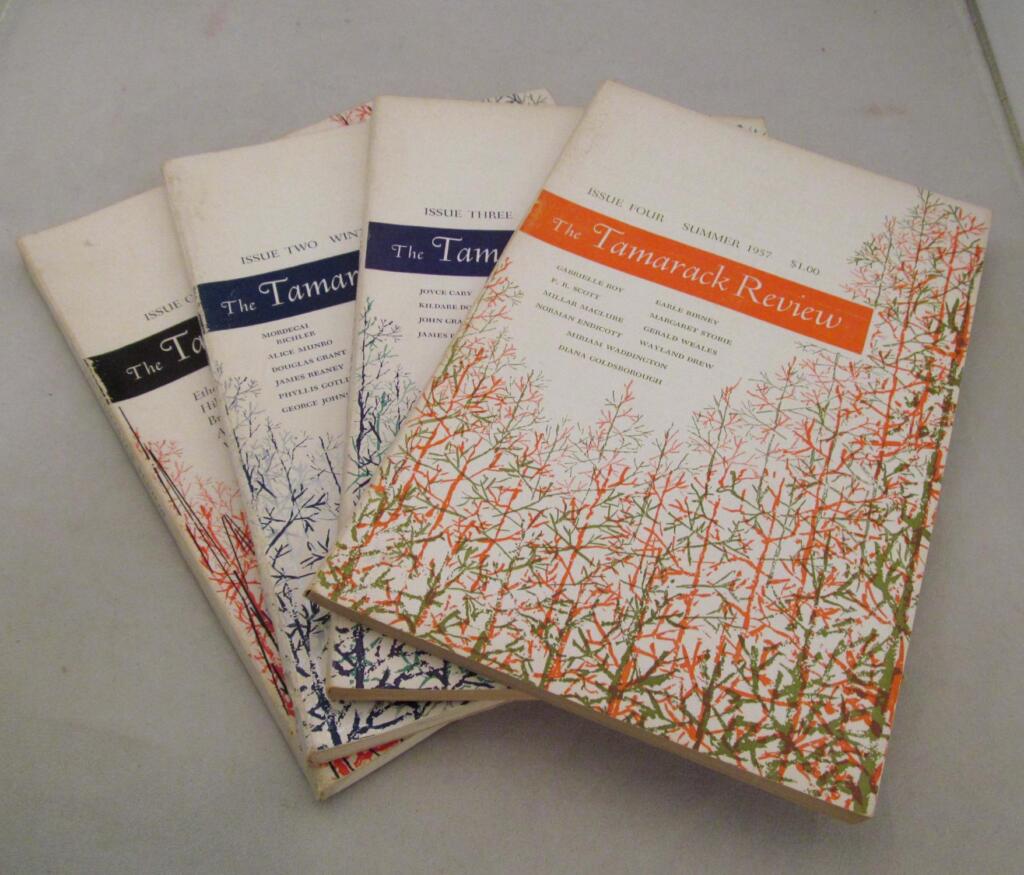
Kildare would go on to co-found the Canadian Magazine Tamarack Review and become managing editor of Saturday Night. Educated in Dublin, Cambridge, and London, he was an early contributor to CBC Radio’s Ideas and Anthology. He produced a wide variety of writing including novels, short stories, and poetry as well as highly popular travel writing. He won a Governor General’s Literary Award for fiction and was the recipient of the Order of Canada. I was surprised that besides being a gracious host he also had outstanding culinary skills. Naturally ginger in appearance he was blessed with a ready smile and an Irish lilt that was totally disarming. I was told that the order processing department at Macmillan forgave him practically anything.
Bill’s sense of commitment to the book industry involved him, as it did many other booksellers, in the “distribution of obscene literature” litigations prevalent in the ‘50’s and ‘60’s. With the financial assistance of Dell Publishing and the Canadian Book Publishers Association, Bill took these charges to the B.C. Supreme Court. It was an expensive lesson for everyone involved and Bill learned from the experience. When a City Vice Squad detective appeared in his store asking for a copy of the latest “banned book” Bill sent him next door to the Public Library and suggested he obtain a borrower’s card like everybody else.
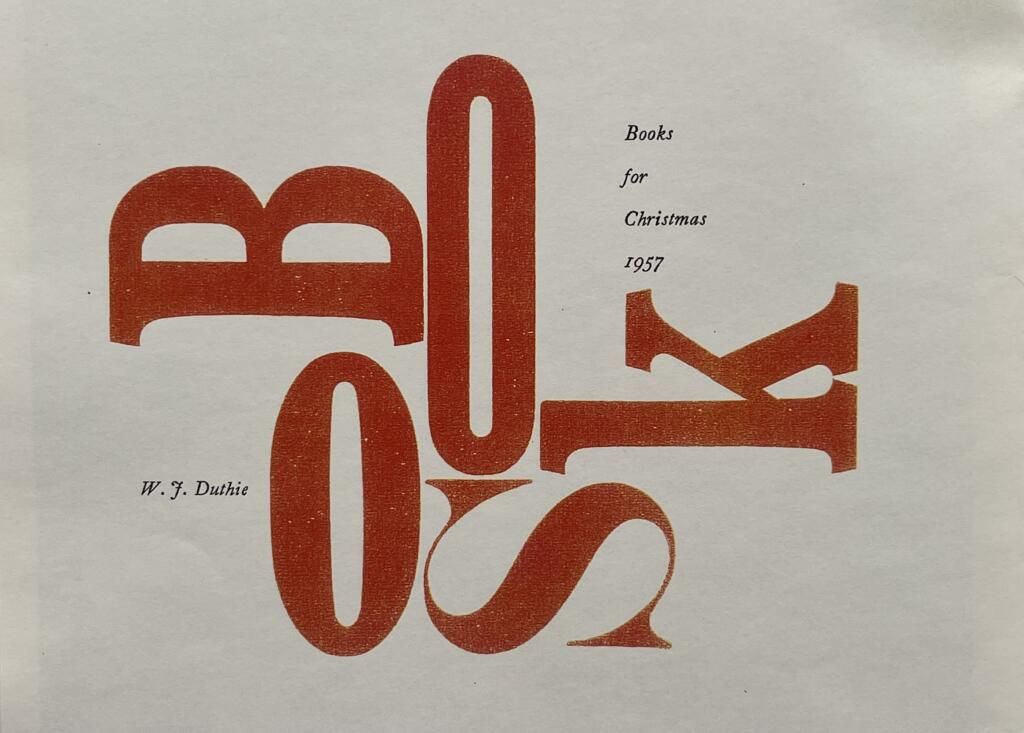
The ”carriage trade” was one part of the business Bill had worked hard to develop and Duthie Books became synonymous with knowledge and quality. In 1966, the bookstore moved to the corner of Hornby and Pender while architect Geoff Massey designed the new location at 919 Robson. At the time it was most unusual that a bookstore owner would employ an architect to design their new store. Included were new floor-to-ceiling glass windows which would provide more light and air among the handsomely produced wooden book shelves. Bill knew he had finally ‘arrived’ when not one but two maroon Rolls-Royces were parked outside his door. When one of the owners, her view obscured by an armload of books, lowered her purchases into the open trunk, Bill heard her exclaim as she looked up; “you’re not my chauffeur” and hurried to help her carry her selections back to her own Rolls.
Bill Duthie’s kindness and concern for his staff were well known but occasionally even Bill’s limits were tested. One employee who left town in a hurry with the night deposit in his pocket wrote a very touching note to his former boss. He advised he was sorry but he really needed the money. Shortly thereafter he must have written an even more persuasive letter because he apologized again for taking the money and asked Bill for a letter of recommendation for a job with an eastern bookstore chain. Apparently, Bill gave him one.
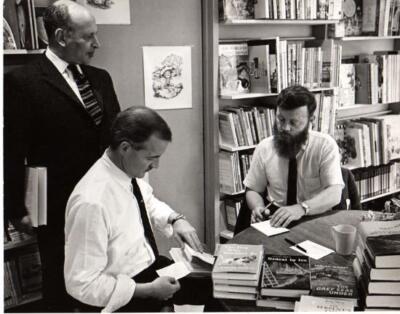
The year after opening Bill again took a huge gamble. Knowledge, style, and hard work were attributes Bill possessed but in 1958 he revealed both a shrewd business sense and the courage to trust his instincts when he hired a truly unique warm human being in Binky Marks. Over the objections and reservations of many in the publishing and bookselling community, Bill recognized Binky’s vast book knowledge and varied contacts. Consequently, Bill lured him away from the People’s Co-op Bookstore, to open Duthie’s Paperback Cellar. “When he ran the Co-op bookstore it was the most interesting bookstore in Vancouver until we got going” said Bill Duthie. “It wasn’t in a part of town that would normally bring in a lot of wealthier customers, but he used to get them because he had a lot of art books.”
After over ten years as manager, Binky reflected “When I joined the Co-op it had $7,000 worth of books and $6,000 in debts,” he said. “When I left it had $35,000 in books and $25,000 in debts. That was a mild sort of progress, I suppose”. In their new location in the heart of Commercial Drive the Peoples Co-op is now advertised as Canada’s oldest bookstore. After the Second World War and into the ’60s both hardcover and paperback books were considered to be part of the stationery trade. In the late ‘50s paperback books still carried the “penny dreadful” disreputable image from the Second World War. Most booksellers tended to ignore them or at best treat them with disdain. It was considered revolutionary to devote an entire floor to paperbacks. Penguin Classics and J.M. Dent’s Everyman’s Library were two of the leading proponents of quality content. Binky was then, according to Bill “ . . . more untidy than he was later,” but he brought with him the art and literary clientele and an encyclopedic knowledge of books which were to make Binky, in paperbacks, and Bill, in hard covers, legends. Both men and most of their staff committed to memory literally thousands of authors, titles and publishers and often prices as well. Most English and American titles were distributed from Canadian-owned office/warehouses located north of Toronto. Barcodes, to identify individual books, had not been created and there were few annual reference tools such as Books in Print available. To keep abreast of British book publishing, it was necessary to read airmailed copies of The Bookseller each week.
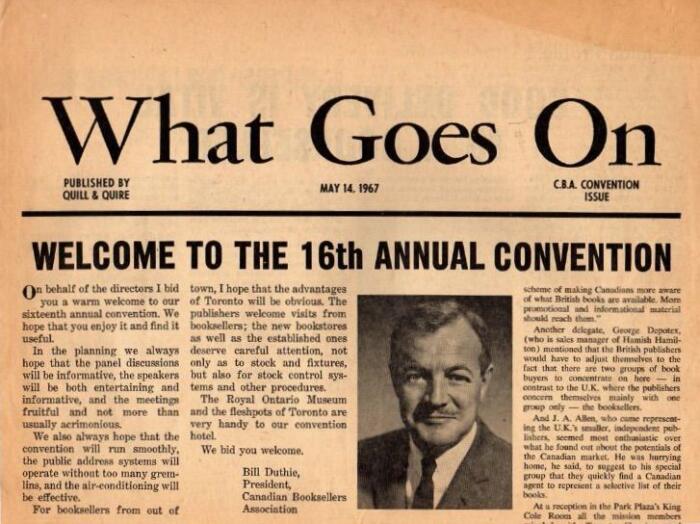
Beginning in the early 60’s Bill Duthie and Binky became a major influence in Vancouver’s cultural revolution. Paperback books began to find a wider audience and magazine and newspaper reviews were finally on the horizon. The Paperback Cellar quickly became Binky’s own bookshop. Duthie Books would, in the next two decades, expand to four locations around Vancouver.
Both men taught untold number of sales representatives their backlists, employed many future bookstore owners, mainly women, and Binky supplemented this kindness with dinners he hosted at the On-On Tea Gardens and invitations to play volleyball with the girls at Sunny Trails Nudist Park.
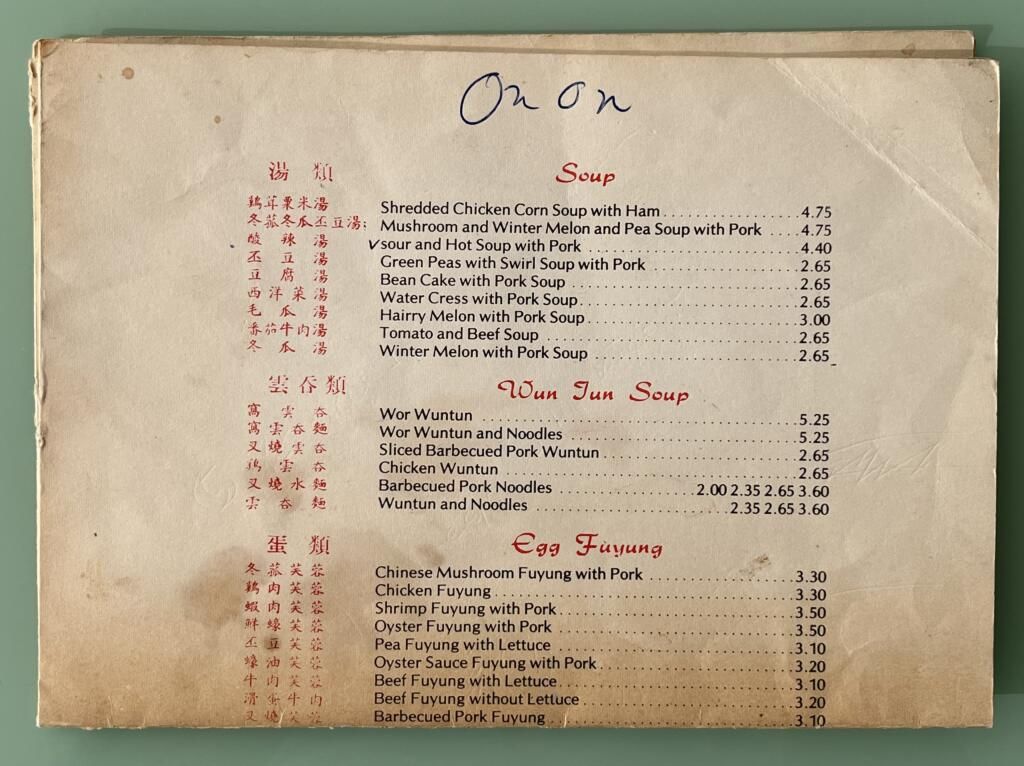
When Bill, Binky, and U.B.C. Librarian Basil Stuart-Stubbs were invited to join a small group of booklovers over a few beers, they formed the idea of a Limited Edition Book Club. The Alcuin Society, named after the Alcuin of York (b.735) was launched in 1965 and continues to host the annual Awards for Excellence in Book Design in Canada for books in English and French.
With Canada’s centennial one year away, Basil and Binky met again with Bill over beer “. . . to decide on a centennial project. After some consideration and some more beer we decided that a Canadian Books in Print was the best idea.” As usual the national associations had no money but the three combined arm-twisting and salesmanship to obtain $5,000 each from the Canadian Booksellers Association, the Canadian Book Publishers Council, and the Canada Council. The staff of the Canadian Library Association and the U.B.C. Library would organize and provide the material and, with the co-operation of the French-Canadian publishers, the first edition dated 1967 was published by the University of Toronto Press and distributed in 1968.
When asked about the project, in typical understatement, Bill admitted “Canadian Books in Print is very useful and has become about as essential for us, the booksellers, and for the Public and School librarians, as any reference tool on our shelves”.
On Saturday, February 25th, 1975, McIntyre & Stanton and Duthie Books co-hosted a party for Binky on his sixty-fifth birthday and approaching retirement. It was attended by friends and fellow booksellers who applauded his twenty-eight years of bookselling and support for cultural activities in Vancouver. Not only did he buy tickets to every performance and donate to every fundraiser, he distributed flyers for all events in the bookstore. In lieu of a candle-laden cake the highlight of the evening was the presentation of a Roy Peterson caricature. Peterson was a national and international award-winning editorial cartoonist based in West Vancouver. In person Roy was quiet, witty, stubborn and handsomely bearded. The cartoon captured the essence of Binky Marks. It showed a smiling Binky sitting naked, a book in each hand and surrounded by piles of books. There were tiny satyr-like horns on his balding head, goat ears, sharp tiny hooves and a rigid spear-like tail pointing toward Sunny Trails Nudist Park.
“They say I’m a dirty old man” he admitted. “Well I’m much more effective than a dirty young man at selling books and chasing girls.” When someone mentioned a recent incident with a well-endowed married woman at the Sunny Trails Nudist Colony, he replied “It’s a respectable camp and I’m the only one who tries to make it unrespectable.” There were several toasts proposed including one to Binky’s cat.
The evening ended in a rowdy and raucous rendering of Happy Birthday.
Binky’s phased retirement, he currently worked four days a week and planned to soon make that three, prompted others to consider his legacy. “I don’t think Duthie’s Paperback Cellar has an equal in Canada” said Jim Douglas, “and Binky built it up from nothing. He concentrated on quality and range and today if you can’t get it at Duthies, it’s axiomatic that you’re not going to get it”. With over 20,000 titles available, Binky has consistently brought a broad range of top quality books to readers with an emphasis on Canadian writing.
Binky, being an old leftist, has not altered his strongly held principles, especially when confronted by the arrogance of the affluent. At least “ . . . once a year I have to tell some highly dignified gentleman or lady to go fuck themselves.”
Jim Douglas, who succeeded Bill Duthie in representing Macmillan of Canada and McClelland and Stewart also recognized the essence of Binky Marks. “Binky always found time somehow to find out what was inside the books. That’s the difference between booksellers and bookmen. A bookseller reads the reviews and attends to the customers, a bookman gets into the books. Binky has always been a bookman.”
Binky too reflected on changes and trends in the book trade. “During the past Christmas period more than half of the hardcovers and over thirty-five percent of the paperbacks sold by Duthie’s are Canadian books. There are probably twice as many bookstores in B.C. today as there were ten years ago and it hasn’t hurt our business in the slightest. It seems the more bookstores there are the more books that are sold”.
In 1974, eastern- based and British-owned W.H. Smith & Sons bought four Evelyn De Mille stores in British Columbia and Alberta, raising concerns about the expansion of the chains. W.H. Smith & Sons were “the world’s largest booksellers”. In 1949 they had 14,000 employees worldwide and the following year they began opening stores in Canada. Neither Bill nor Binky felt threatened, adding “Coles have been no threat to us”. Limited to locations in shopping malls, the sixty Coles stores stretched coast to coast. Led by Woodwards and Eatons, these department store book departments were also expanding throughout B.C. and into Alberta.
“I’m really scared of the day when the computers take over,” Binky says. “Right now, 80 percent of stock control is in your head and in future it will probably mean relying on the computer. The computers have reached the wholesale level and I don’t think it will be long before they reach the retail level.”
“Binky Marks”, says his friend Jim Douglas “represents one of the most eccentric of eccentrics we’ve ever had in Canadian bookselling. It’s now become a hot-shot business where the range of personal knowledge isn’t as important as the ability to turn books over quickly. The emphasis is no longer on bookmanship but on salesmanship and managerial skill. There is less scope now for the Binky Marks of this world to develop, eccentrics make modern management nervous.”
Recently returned from a three week sailing trip in the Caribbean, tanned and relaxed with a greyish beard, Binky was ready to fly east to do battle with the national publishers. He and his young blue-jeaned protégé, David Kerfoot, were scheduled to attend the 1975 Canadian Booksellers mid-June Convention in Halifax.

Until 1975, the never changing Booksellers Council had traditionally held their annual conventions in Toronto. Not only did the 1975 convention move to Halifax but it featured Xaviera Hollander, the author of The Happy Hooker, which had sold over 20 million copies, to speak at the closing banquet. A decade-and-a-half before Julia Roberts walked the same side of the street in Pretty Woman, Xaviera was acquiring new skills in self-promotion. With a new movie of the same name to promote, her publisher offered to provide tie-in paperback copies free to all convention delegates. The movie, which starred Lynn Redgrave, would be followed by two sequels and, in true Hollywood tradition, neither would make quite the same impact as the first.
After a speech laden with double entendre, droll humour and unladylike puns, she announced that she would now sign books. She would also sign practically anything – photos, T-shirts, even arms, but when Binky began to undo his pants, she drew the line “…not in public” she whispered. Binky returned to our table but it wasn’t long before he received a signal and the two waved goodbye before going off into the night. Binky genuinely loved women and if he encountered a woman who could write he was in heaven. We don’t know what happened between Binky and Xaviera that night. What we do know is that sometime around midnight Binky returned to the hotel room he shared with Dave Kerfoot, wished him “sweet dreams” and climbed into bed.

My bedside phone rang early the next morning. In a whisper Dave Kerfoot informed me that Binky had had a heart attack in the night and the coroner had just taken his body away. The police were coming to question Dave and he needed my help. He met me in his doorway and pressed a brown paper bag into my hands. “It’s Binky’s weed, take it up to your room before the police start poking around.” David had appeared at the door without his usual owl-like horn-rimmed glasses revealing a face lined by stress. When I returned two young detectives were scanning the room. “There must have been quite a tussle here last night” one said. And he was right. In addition to bits and pieces of clothing strewn around, there were convention handouts, advance copies of books, badges, and paraphernalia everywhere. We explained that Binky was a very untidy person and the room litter would be considered usual for him. After the police left, I had coffee sent up to Dave’s room and we tried to make sense out of what had happened and what lay ahead. We recalled that Jewish protocol required that burial must take place before sunset the following day. Even if Binky was not religious, we should honour the tradition. Burial in Halifax seemed inappropriate as well as complicated and time consuming. Just then the coroner called to advise that cremation that day was possible but the decision would have to be made right away. With no help from Vancouver, which was still in the dark and four hours behind us, we were on our own. We made the decision to proceed with cremation but Dave couldn’t take Binky’s ashes as his flight left later that morning. For some reason I can’t recall, I was scheduled to fly west on the same flight on the following morning. It was arranged that I would stop by the funeral home on my way to the airport.
The next morning when I was packing, I suddenly remembered the brown-bagged stash which I still hadn’t managed to flush down the toilet. I had some hazy idea of all Binky’s friends sitting around smoking his bud and telling stories about him. It seemed to fit as a tribute to a man so friendly to everyone. Air Canada provided their frequent fliers with little blue and white purse-sized totes. And that is where I crammed the brown paper bag. While the taxi waited, I met the funeral home director who, very solemnly, presented me with the boxed urn of ashes. It too was crammed into the top of the carry-on.
At the Halifax airport, I went to the Air Canada counter, checked my suitcase, and took my place in the slow-moving security line. A security check, in 1975, consisted of each passenger presenting their carry-ons for examination. Security personnel were on one side and passengers on the other side of a long chipped and battered table. As I stood there daydreaming about walking across the tarmac and climbing the metal stairs to my flight, I couldn’t remember whether I had chosen a window or an aisle seat. Suddenly, one passenger away from the uniformed agent, I awoke to the danger. I was still holding my breath when the security agent took my tote and unzipped it revealing a white box and a brown bag. Pointing inside he asked “What’s this?” His finger was indicating the white box with a sticker featuring the funeral home name and address across the top. I explained that my friend had died here in Halifax and had been cremated. These were his ashes I was taking home to Vancouver. He re-zipped the tote and, handing it to me, said he was sorry for my loss. I have no memory of the flight home except for the feeling of relief that I had come so close to being arrested.
Back in Vancouver I left Binky’s ashes with Elspeth Gardner, his lawyer and also mine. Elspeth, also a reformed communist, dispensed legal aid in the Downtown Eastside where she and Harry Rankin had been long-time partners.
Shortly after Binky’s sister Dorothy came out to Vancouver and hosted a gathering at his home. It was a much quieter low-key afternoon event. She had always wondered about Binky’s life out here as most of his relatives in Toronto had always considered him “the black sheep of the family”. She was pleasantly surprised at how many friends he had and how much he was loved. The brown paper bag remained unopened as I felt it was inappropriate for the occasion. I believe Binky would have approved. Dorothy Marks gave me three of Binky’s books that I continue to treasure. I miss his generosity, his humanity and his readiness to laugh and enjoy life to the fullest.
[Author’s note: I would like to acknowledge the assistance of Daniel Francis for his editorial advice, Roberto Dosil for his selection of images and Dean Stanton for his research. As always a big thanks to Annette, my computer-skilled wife.]
[Editor’s note: This essay has been re-posted with an updated draft, Dec. 3, 2023 – TMH]
*
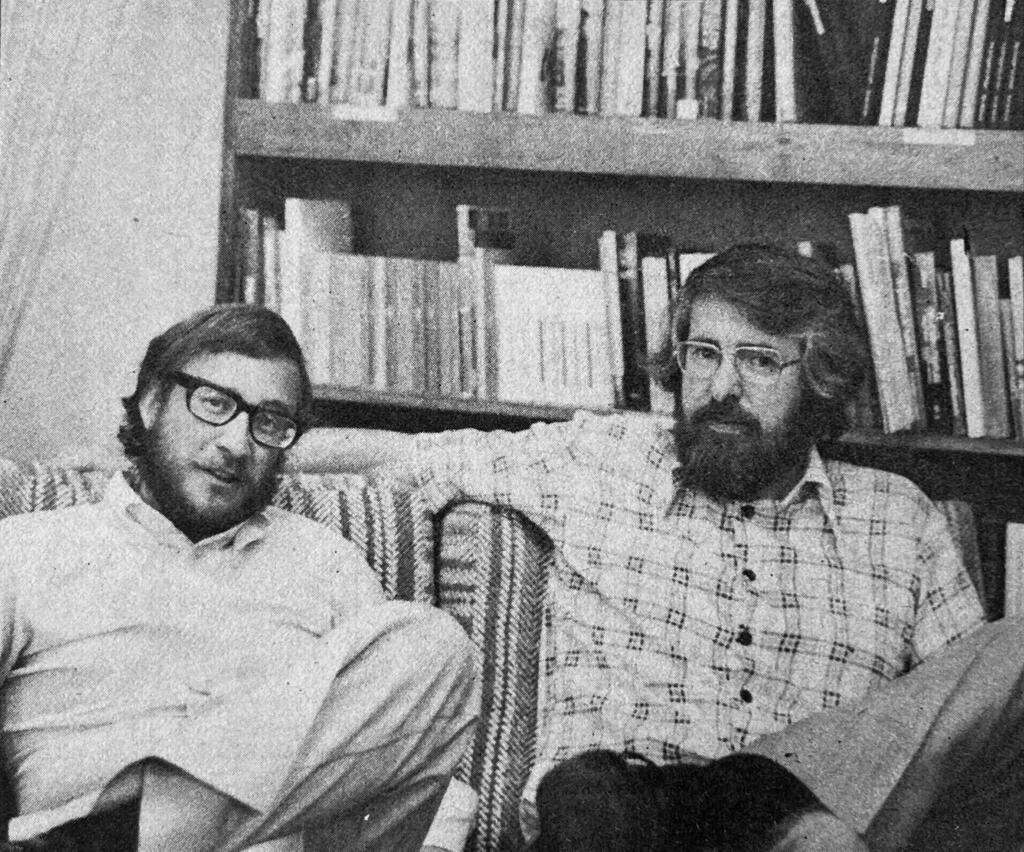
Mark Stanton began his publishing career in 1963. As President of Stanton & MacDougall he established Raincoast Books in 1979.
*
The British Columbia Review
Interim Editors, 2023-24: Trevor Marc Hughes (non-fiction), Brett Josef Grubisic (fiction)
Publisher: Richard Mackie
Formerly The Ormsby Review, The British Columbia Review is an on-line book review and journal service for BC writers and readers. The Advisory Board now consists of Jean Barman, Wade Davis, Robin Fisher, Barry Gough, Hugh Johnston, Kathy Mezei, Patricia Roy, Maria Tippett, and Graeme Wynn. Provincial Government Patron (since September 2018): Creative BC. Honorary Patron: Yosef Wosk. Scholarly Patron: SFU Graduate Liberal Studies. The British Columbia Review was founded in 2016 by Richard Mackie and Alan Twigg.
“Only connect.” – E.M. Forster
5 comments on “Flying Binky Home”
What a fine piece on Duthie Books and Binky Marks. Thank you Mark Stanton. It is this depth and quality of writing that helps make BC Review the site to consult on all aspects of BC literature and related aspects of the province’s creative industries. RV
Interesting essay on Binky Marks; I’m glad to know more about him. I knew of him through my research in BC film history. Marks was also involved in the Vancouver Branch of the National Film Society of Canada–later the Vancouver Film Society. In the late 1940s, he served on the society’s board. According to filmmaker Stanley Fox, Marks was instrumental (with Dorothy Burritt and Moira Armour) in organizing the society’s summertime screenings of classic films at the Pender Auditorium’s “Boilermakers’ Hall.”
Awesome article. I navigated here because some years ago I bought a book on eBay and inside was a bookmark from Duthie Books, with a logo and, “Binky Marks 1910-1975” written on it. I just moved and came across it again, and decided I had to find out who Binky Marks was. Thanks.
Dec. 22
Thank you Mark for bringing back all those amazing times. I knew Binky for many years, he was one of the most kindhearted people I had the privilege of knowing. He was also a great cook and a chaser of women. My late husband Dale and I took him across the border once to go to some Christmas event for book sellers. On the way , on the Canadian side, he insisted we pick up a young woman. We were stopped at the border, the woman got out of the car and started running, Binky was taken off somewhere and questioned, because of his leftist background. The border guards had a file on him. He eventually returned to the car and we went on our way to the party, late of course. We never did find out what happened to that young woman.Lucy
Thank you Mark Stanton for these remembrances. I spent a lot of time downstairs at the Robson and Hornby store and what you’ve written brings back what the late Dean Allen fondly referred to as its “whisperings.”